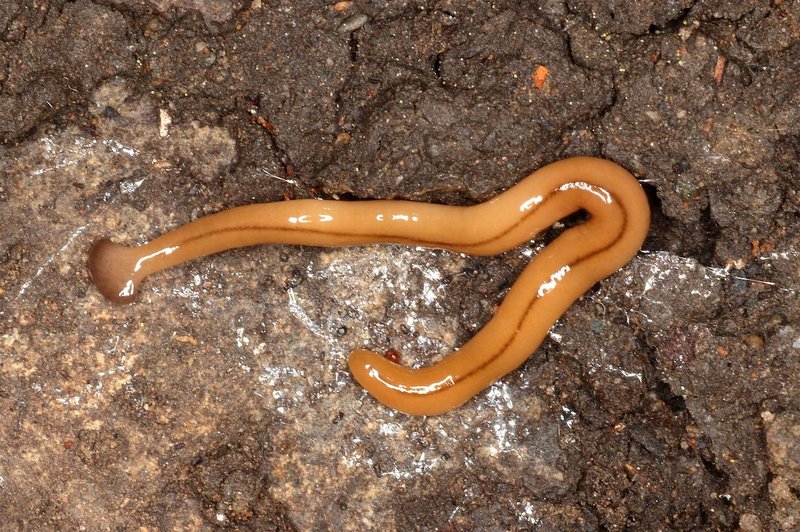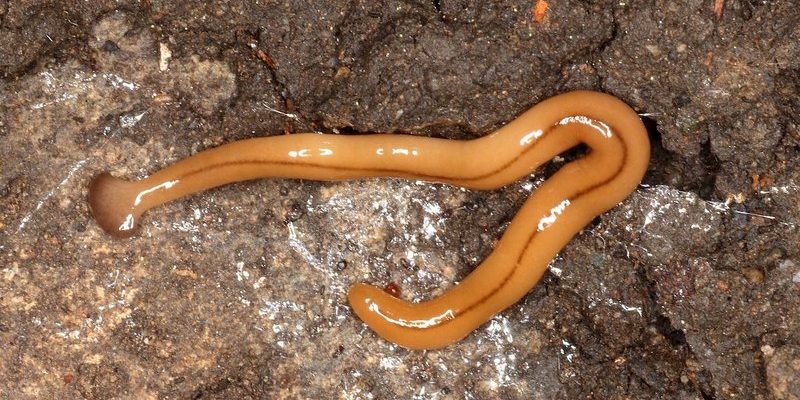
Think of your garden like a cozy café you want to keep inviting. If it’s messy or disorganized, your guests (the good worms, plants, and beneficial insects) might not stick around. By adopting certain cleanup strategies, you can make your garden less appealing to hammerhead worms and more welcoming to the critters you love. Let’s dig into some practices that can help you manage your garden space like a pro.
Understanding Hammerhead Worms
Before we jump into cleanup practices, let’s take a moment to understand what we’re dealing with. *Hammerhead worms*, scientifically known as *Bipalium kewense*, are flat, elongated creatures with a distinctive hammer-like shape at their heads. They’re not just weird-looking; they’re also predatory and can pose a threat to your garden’s health. Typically, they thrive in warm, damp conditions, which unfortunately, are also ideal for many plants.
You might encounter these worms particularly in tropical and subtropical areas, but they can show up in gardens almost anywhere. Their primary diet consists of earthworms, which play a crucial role in soil health. When hammerhead worms invade, they can lead to a decline in your earthworm population, adversely affecting plant growth. So, tackling these pests is not just about aesthetics; it’s about maintaining a healthy garden ecosystem.
Regular Cleanup of Organic Debris
One of the best ways to deter hammerhead worms is by cleaning up organic debris regularly. Think of your garden as a canvas, where every fallen leaf or decaying plant is a brushstroke. If you leave too much debris lying around, it becomes a buffet for unwanted guests, including hammerhead worms.
Here’s how to tackle this:
- Clear old plants: At the end of each growing season, remove dead or decaying plants. They not only clutter your space but can also provide a hiding spot for pests.
- Rake leaves: Fallen leaves can create moist environments where worms thrive. Regular raking helps minimize this debris.
- Compost wisely: If you’re composting kitchen scraps or garden waste, ensure your compost pile is maintained properly. Hot composting can kill off any unwanted pests.
By keeping your garden tidy, you’ll make it less appealing for hammerhead worms to take up residence.
Proper Water Management
Water is essential for plant growth but can be a double-edged sword when it comes to hammerhead worms. These creatures love moist environments, so managing water levels in your garden is key. You want to give your plants just the right amount of water without creating swamp-like conditions.
Here’s how to manage it:
- Check drainage: Ensure your garden has proper drainage. If water tends to pool in one area, consider installing drainage systems or creating raised beds.
- Water wisely: Water early in the day and avoid over-watering. This allows the soil to dry out by evening, making it less inviting for hammerhead worms.
- Use mulch: A thin layer of mulch can help retain moisture without saturating the soil. Plus, it can deter some pests and weeds.
Effective water management keeps your plants happy and minimizes moist conditions that hammerhead worms prefer.
Maintain Healthy Soil
Healthy soil is the foundation of a flourishing garden. When the soil is rich in nutrients and well-aerated, it naturally encourages beneficial organisms while deterring pests. Hammerhead worms are less likely to invade well-maintained soil, so let’s focus on building a robust soil structure.
Here are some tips:
- Test your soil: Start by testing your soil for nutrient levels and pH. This will guide your amendments and help you understand what it needs.
- Rotate crops: Changing the types of plants you grow in an area each season can disrupt insect life cycles and reduce pest populations.
- Incorporate organic matter: Regularly add compost or well-rotted manure to your soil. This boosts fertility and helps improve soil structure, making it less favorable for pests.
By focusing on healthy soil practices, you create an environment where hammerhead worms aren’t as likely to thrive.
Encouraging Natural Predators
Just like the superheroes in your favorite comic book, natural predators can help keep hammerhead worms in check. Birds, frogs, and beneficial insects all play a role in pest management. If you can create a welcoming environment for these allies, you’ll have a better chance of controlling hammerhead worm populations in your garden.
Here’s how to attract friendly critters:
- Provide shelter: Install birdhouses, bat boxes, or even insect hotels to offer a safe haven for these natural predators.
- Plant diverse flora: A variety of plants can attract more wildlife. Try to include native plants in your garden to draw in local birds and insects.
- Limit pesticide use: While it can be tempting to spray harsh chemicals, these can kill beneficial insects as well. Focus on organic pest control methods instead.
Creating a haven for natural predators can help maintain balance in your garden and control unwanted pests like hammerhead worms.
Host a Garden Inspection Routine
Routine inspections of your garden can make a huge difference in catching hammerhead worms before they become a problem. Think of it as a wellness check-up for your plants. Regular inspection allows you to identify and address issues early on.
Here’s how to set up a routine:
- Schedule inspections: Plan to check your garden weekly or bi-weekly. Consistency is key!
- Look closely: During inspections, examine the soil, plants, and any organic matter. Identify any hammerhead worms or signs of their presence.
- Take action: If you find any, remove them by hand (wear gloves!) or use appropriate organic control methods.
By making garden inspections part of your routine, you’ll be more proactive about hammerhead worms and other pests.
Gardening is a rewarding and therapeutic endeavor, but it comes with its challenges. Hammerhead worms are just one of many distractions that can divert your attention away from enjoying your garden. By implementing these garden cleanup practices, you can create an environment that discourages these unwelcome guests while nurturing the plants and organisms you love.
Keep your space tidy, manage moisture, encourage healthy soil, attract natural predators, and inspect regularly. It’s all about creating a balanced ecosystem that promotes growth and protects against pests. With these tips in your gardening toolkit, you’ll be well on your way to a thriving garden that’s free from hammerhead worm infestations. Happy gardening!

